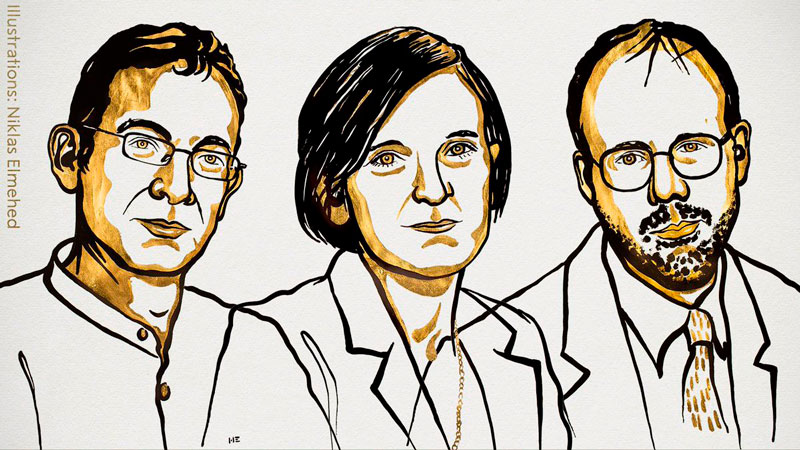Trickle Up sends our congratulations to Esther Duflo and Abhijit Banerjee for receiving this year’s Nobel Prize in Economics, which recognized them for their pioneering work in identifying effective approaches to ending poverty. Both have been champions of Trickle Up’s work, through their major research on the Graduation approach that we follow. Their Nobel prize is shared by Michael Kremer, who also has done important work on global poverty but has not, to my knowledge, been directly involved in the Graduation field.
Duflo and Banerjee have been leaders in the development of randomized controlled trial (RCT) studies, which seek to identify the impact that a particular intervention can make and also to make a strong case for correlation between the intervention and the results. Drawing upon research techniques originally used in the pharmaceutical industry to develop new drugs, RCT methods are now deployed in the non-laboratory setting of communities with high levels of poverty. The basic idea is to have one (or sometimes a few more) “treatment” groups that are the beneficiaries of a poverty program and another set of “control” groups whose characteristics are similar but are not involved in the program. (Typically, the control groups do receive the poverty support at a later date.)
“In just two decades, their new experiment-based approach has transformed development economics, which is now a flourishing field of research,” the Royal Swedish Academy of Sciences, which selects Nobel winners, said in a statement. “This contribution has had a huge impact in a relatively short period of time.” It is worth noting that the proper name for this prize is the Nobel Memorial Prize for Economic Science, since the work that all three Nobel laureates is firmly rooted in the principles of scientific research.
Within the consortium of NGOs, researchers, and funders that have carried a series of pilot projects to test the global impact and flexibility of the Graduation approach, Duflo and Banerjee were the lead authors of a landmark research study on Graduation’s effectiveness in RCTs in six countries. Published in Science magazine in 2015, that study attracted global attention and helped accelerate the adoption of the Graduation methodology by national governments, major national funders like USAID and DFID (its British counterpart), and global agencies including the World Bank and the UN Refugee Agency. Duflo also has been eloquent on how one of the most important and lasting benefits of the Graduation approach is that it instills women with hope, a quality that is hard to measure…but one, as we know from our own experience at Trickle Up, is a critical factor for success.
In addition to being thrilled by this recognition for the Duflo and Banerjee, we are very pleased that the Nobel committee chose to focus on global poverty. At a time when it seems like so much of the world’s attention is in other directions, the statement that the Nobel committee has made is a reminder that global poverty must be a global priority…and that, importantly, viable solutions, backed by strong evidence and research, exist.



